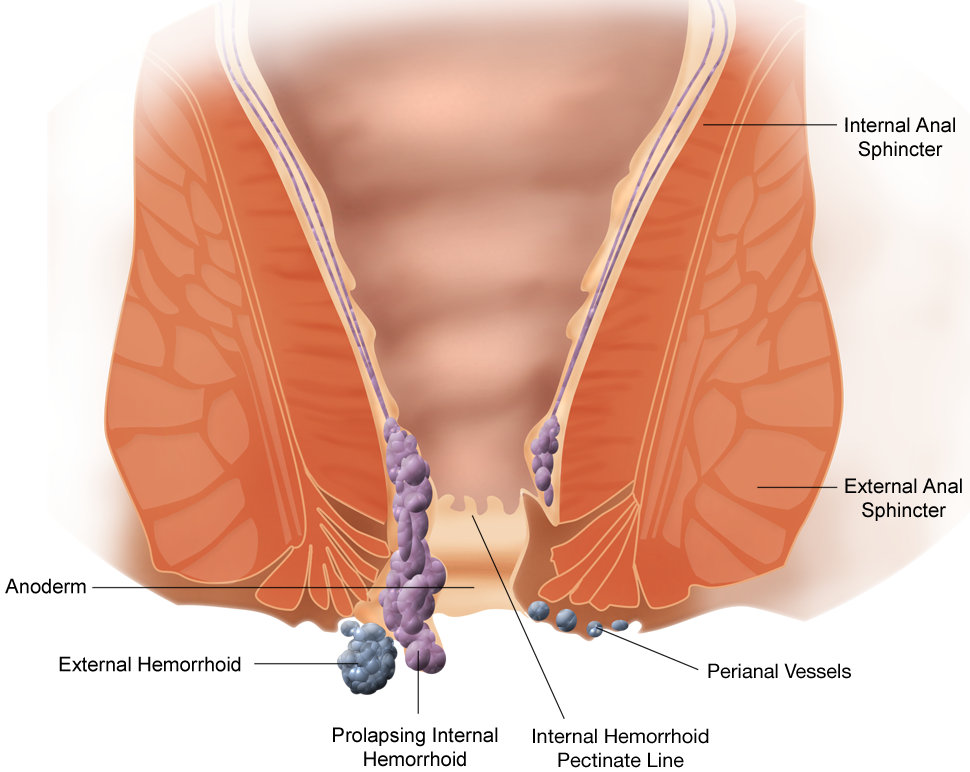
Maintaining healthy cholesterol levels is absolutely paramount for your overall well-being. It’s a key factor in protecting your heart, which is why understanding the impact of your dietary choices is so crucial. High cholesterol can significantly increase the risk of cardiovascular diseases, stroke, and other serious health complications, making it a health concern that demands our attention.
Cholesterol, a waxy substance found in your blood, is necessary for building cells and producing certain hormones. However, not all cholesterol is created equal. There are two main types: low-density lipoprotein (LDL), often referred to as “bad cholesterol,” which can lead to plaque buildup in your arteries, and high-density lipoprotein (HDL), known as “good cholesterol,” which helps remove LDL from the bloodstream. When LDL cholesterol gets too high, it becomes a major contributing factor to heart disease, which, alarmingly, remains the number one leading cause of death.
While genetics and lifestyle factors certainly play their part, your diet plays a truly significant role in managing cholesterol levels. The good news is that in most cases, high cholesterol levels can be prevented and controlled through a healthy diet, exercise, avoiding smoking, limiting alcohol intake, and managing weight. Here, we’ll delve into some of the worst meat choices for your cholesterol, providing insights into their effects and offering practical, dietitian-approved advice for making heart-friendly choices. Let’s empower ourselves to make better decisions for a healthier, more vibrant life.
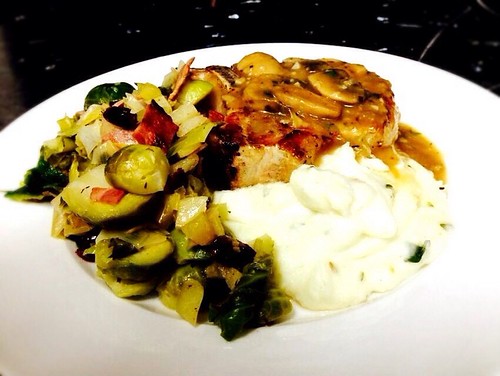
1. **Bacon**Bacon has an undeniable allure, whether it’s crisping up next to eggs, adding a smoky punch to vegetables, or completing a classic burger. It provides that irresistible crispy layer of savoriness that can seem to pull a meal together. Unfortunately, while it might enhance your meal’s flavor profile, it’s not doing your heart health any favors.
The context explicitly highlights a critical nutritional imbalance in bacon: “The total calories from saturated fat in most bacon products (about 27 calories per two-slice serving) is more than the calories of protein (about 22 calories per two-slice serving)!” This statistic alone underscores why bacon makes this list as a significant contributor to high saturated fat intake.
Saturated fat is a primary dietary factor that can disrupt the liver’s ability to balance cholesterol levels, increasing its production of LDL cholesterol and reducing the receptors that remove excess LDL from the blood. With more LDL circulating and fewer ways for your body to get rid of it, your cholesterol numbers can quickly climb, elevating your risk of atherosclerosis – the build-up of fatty material in your blood vessels.
To protect your heart, consider bacon an occasional indulgence rather than a regular staple. When you crave that smoky flavor, explore plant-based alternatives or lean protein options that offer satisfying taste without the detrimental saturated fat load. Making conscious swaps can go a long way in stabilizing your cholesterol levels and supporting long-term heart health.
Read more about: Fueling Vision: The 14 Foods Ophthalmologists Strictly Limit for Optimal Eye Health and Clarity
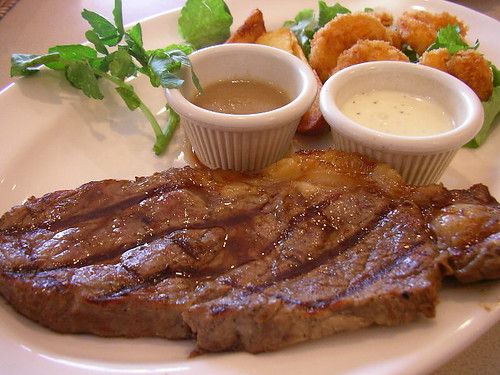
2. **Fatty Steak Cuts (e.g., Ribeye, Porterhouse, Filet Mignon)**Steak, a beloved red meat, varies widely in its nutritional profile depending on the cut. While some cuts are leaner, many popular options are notorious for their high saturated fat content, making them significant contributors to elevated LDL cholesterol. It’s truly a good idea to familiarize yourself with the nutrition associated with various cuts of steak to make informed choices.
For instance, the context points out specific examples: “a bison ribeye steak makes a cringe-worthy contribution to your fat intake. It contains 11 grams of saturated fat and one gram of trans fat per four-ounce serving without being trimmed.” Similarly, “A filet mignon tenderloin steak has a shockingly comparative 10 grams of saturated per four-ounce serving,” and “The porterhouse steak, sourced from the loin of a cow, comes in close to previous potential cholesterol-raising contenders at nine grams of saturated fat (and 290 calories!) per four-ounce serving.” These numbers quickly add up and can push your daily saturated fat intake well beyond recommended limits.
These fatty cuts of red meat, though often tender and flavorful, are primary sources of saturated fat, which directly impacts your liver’s ability to manage cholesterol effectively. Saturated fats increase the production of ‘bad’ LDL cholesterol, leading to its accumulation in your blood vessels. This buildup can pave the way for serious cardiovascular issues, including heart attacks and strokes.
When enjoying steak, opt for leaner cuts like sirloin or pork loin, and always trim off any visible fat before cooking. Furthermore, dietitians recommend consuming red meats no more than once per week. If your cholesterol levels are already a concern or you have a family history of cardiovascular disease, it’s wise to limit your intake even further. Incorporating lean sources of protein such as fish, chicken (skinless), beans, or lentils can provide delicious and heart-healthier alternatives.

3. **Fatty Lamb Cuts (e.g., Loin Chops, Shoulder Chops)**Lamb, like beef, is categorized as red meat due to its significant myoglobin content, which gives it its characteristic color. While lamb can be a delicious and cultural staple, certain cuts are particularly high in saturated fat and can negatively impact your cholesterol levels. Understanding these distinctions is key to making healthier choices for your heart.
Specific lamb cuts are highlighted in the context for their saturated fat contribution: “Most lamb loin chops provide about 11 grams of saturated fat per four-ounce serving, while lamb shoulder chops come in at around nine grams of saturated fat per four-ounce serving.” These figures demonstrate that even in moderate portions, these cuts can significantly contribute to your daily saturated fat intake, pushing you closer to or beyond the recommended limits for optimal heart health.
The high saturated fat in these lamb cuts works to raise your LDL, or ‘bad,’ cholesterol. This increase in LDL cholesterol promotes plaque buildup within your arteries, a condition known as atherosclerosis. This process narrows the arteries, making it harder for blood to flow freely and significantly increasing your risk of heart attacks and strokes. It’s a clear link that underscores the importance of mindful consumption.
As with other red meats, moderation is crucial. The recommendation to consume red meats no more than once per week applies here, with further limitations advised if you have existing cholesterol concerns or a family history of heart disease. When preparing lamb, choose leaner cuts and trim all visible fat. Additionally, explore alternative lean proteins such as chicken, turkey without the skin, or various plant-based options like tofu or beans, which offer excellent nutritional benefits without the high saturated fat content.
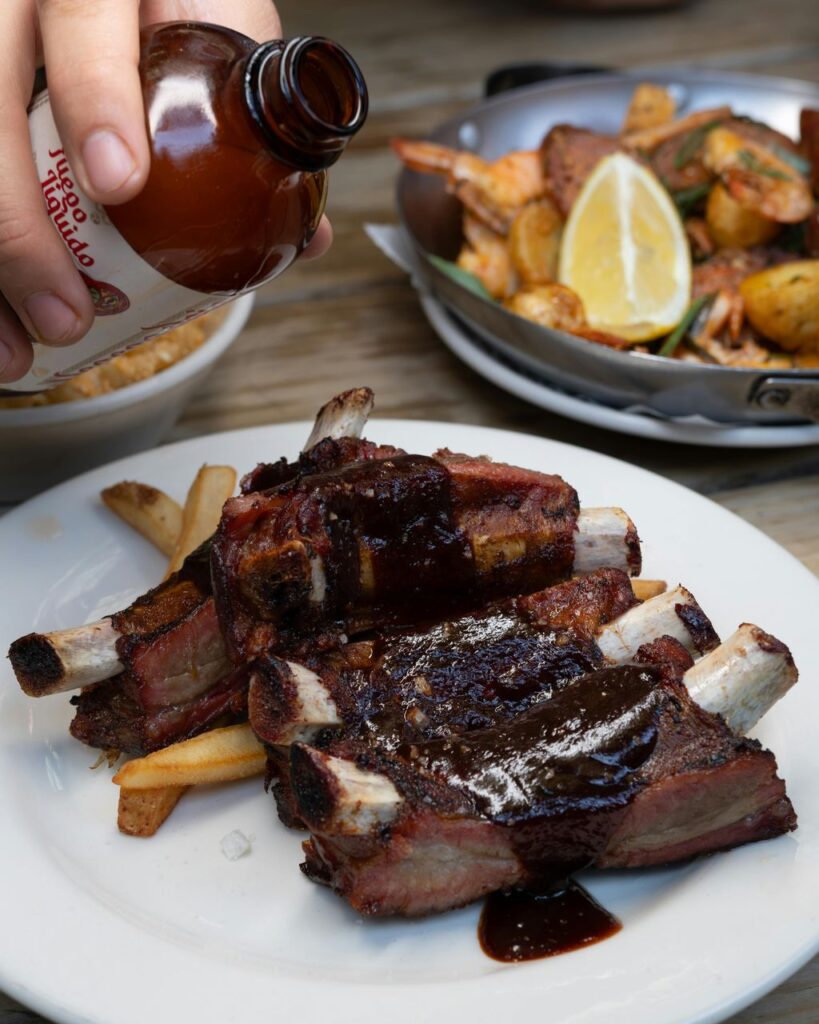
4. **Ribs (Beef Back Ribs, Flank Style Ribs, Short Ribs)**It likely comes as no surprise to many that ribs find their place on this list. The very qualities that make ribs so appealing – their visible marbling and tender, fall-off-the-bone texture – are often indicative of their high fat content. This marbling, while contributing to succulence, is primarily saturated fat, which is precisely what we aim to limit for heart health.
The context specifically warns about the saturated fat in popular rib cuts: “a cut of beef center cut back ribs, beef flank style ribs, and beef bone-in short ribs contain 13 grams of saturated fat per four-ounce serving.” This substantial amount of saturated fat in just a four-ounce portion makes ribs a significant dietary contributor to elevated LDL cholesterol, posing a clear risk to cardiovascular well-being.
Consuming foods high in saturated fat, such as ribs, directly impacts your liver’s ability to efficiently process and remove cholesterol from your bloodstream. This leads to an increase in LDL cholesterol, which, over time, can accumulate as plaque in your arteries. This plaque buildup is a direct pathway to atherosclerosis, a condition that hardens and narrows your arteries, significantly raising your risk of serious cardiac events.
If ribs are a treat you simply can’t resist, dietitians offer practical advice: “If you ordered ribs at a restaurant, try to split them with a friend (or two!) and load up on a side of veggies.” This strategy helps manage portion size and balances the meal with fiber-rich vegetables, which are associated with better cholesterol control. Remember, ribs themselves offer “zero fiber,” making the addition of fibrous vegetables even more important for a more balanced and heart-friendly dining experience.

5. **Sausage (Smoked Links, Kielbasa)**Sausages, in their many forms, are a common and convenient addition to meals, but their processed nature and high fat content can make stabilizing your cholesterol levels a real challenge. They represent a category of processed meats that dietitians frequently advise limiting due to their significant impact on cardiovascular health.
The context provides clear figures regarding their detrimental nutritional profile: “most smoked sausage links contain 6 grams of saturated fat per two-ounce serving (and 350 to 500 milligrams of sodium—we don’t want to shoot up blood pressure too!) and a sausage kielbasa chimes in at 5 grams of saturated fat per two-ounce serving.” These numbers highlight not only the saturated fat issue but also the high sodium, which further compounds the risk for heart disease by contributing to high blood pressure.
Regular intake of processed meats like sausage significantly increases LDL cholesterol levels. The combination of saturated fats and often-present preservatives, like nitrates, can trigger inflammation and contribute to arterial plaque buildup, accelerating the progression of heart disease. This makes sausage a food that, while tasty, carries considerable risks for your heart.
To keep cholesterol levels in check, a truly empowering step is to explore healthier alternatives. Consider trying “less fattening plant-based sausages such as Simple Truth Meatless Breakfast Patties (0.5 grams saturated fat per two-ounce serving) or Simple Truth Plant-Based Meatless Kielbasa Sausage (1.5 grams saturated fat for a whole sausage weighing about 3.3 ounces).” These plant-based options offer a satisfying flavor profile with a dramatically reduced impact on your cholesterol, allowing you to enjoy similar meal experiences while making heart-smart choices.

6. **Deli Meats (e.g., Ham, Salami, Lunch Meats)**Deli meats, including popular choices like ham, salami, and various pre-sliced chicken or turkey, are a common convenience for sandwiches and quick meals. However, these highly processed options are frequently cited by dietitians as problematic for cholesterol management due to their high content of unhealthy fats and other additives. They fall squarely into the category of “highly processed meat” that can lead to higher cholesterol levels.
The context includes deli meats as examples of “highly processed meat” alongside bacon and sausages, emphasizing that “Eating more highly processed meat can lead to higher cholesterol levels.” These products are often packed with saturated fats, sodium, and preservatives like nitrates, which not only contribute to elevated LDL cholesterol but also promote inflammation and arterial plaque buildup. This combined effect significantly raises the risk of heart disease and hypertension.
Processed meats contain high levels of saturated fats, which are known culprits for increasing LDL cholesterol. The processing itself often involves methods that add these unhealthy fats, as well as high amounts of sodium. High sodium intake is directly linked to high blood pressure, another major risk factor for heart disease. Therefore, regularly consuming deli meats creates a multi-pronged assault on your cardiovascular system.
Instead of relying on deli meats, empower yourself by opting for lean sources of protein that support heart health. Consider fresh chicken or turkey slices (without the skin), or plant-based alternatives like beans, peas, and lentils. If you enjoy making sandwiches, prepare your own lean meats by baking or grilling chicken breasts and slicing them thinly. This simple switch can dramatically reduce your intake of harmful fats and sodium, helping you maintain a healthier cholesterol profile.

7. **Hot Dogs**Hot dogs are a quintessential part of many gatherings and quick meals, but their place on this list of worst meats for cholesterol is well-deserved. As another prime example of “highly processed meat,” hot dogs are typically laden with ingredients that actively work against your heart health, making them a food to be consumed with extreme caution, if at all.
The context explicitly includes “hot dogs” under the umbrella of “highly processed meat” that can elevate cholesterol levels. These products are manufactured to be high in saturated fat and often contain trans fats, both of which are highly detrimental to your lipid profile. Beyond fats, hot dogs are also notorious for their high sodium content and various artificial preservatives, all contributing to an increased risk of cardiovascular disease.
The consumption of hot dogs directly contributes to an increase in LDL cholesterol and a decrease in beneficial HDL cholesterol. This unfavorable shift in your lipid profile creates an environment ripe for the development of atherosclerosis, where plaque builds up inside your arteries. The high sodium content further exacerbates the problem by contributing to high blood pressure, a silent but powerful risk factor for heart attacks and strokes.
Making heart-smart choices means actively seeking out healthier alternatives to hot dogs. Explore plant-based sausages or hot dogs, which are increasingly available and often contain significantly less saturated fat and sodium. Alternatively, focus on preparing lean protein sources like grilled chicken or turkey burgers using whole-grain buns and plenty of fresh vegetable toppings. These swaps allow you to enjoy flavorful meals while actively working to protect your cholesterol levels and overall heart health, aligning with a lifestyle that empowers healthy choices.
Having explored the top meat culprits, our deep dive into managing cholesterol continues by uncovering other significant dietary contributors that often fly under the radar. Dietitians consistently highlight that many processed and fat-laden foods, not just meats, pose substantial risks to your lipid profile. Let’s arm ourselves with knowledge to make even smarter, heart-protecting choices and empower a healthier lifestyle.
Read more about: Unlock Your Income Potential: 11 Practical Side Hustles to Earn an Extra $1000 Per Month

8. **Full-Fat Dairy Products**Full-fat dairy products, encompassing items like whole milk, butter, cream, and many cheeses, are notable for their high saturated fat content. While dairy offers essential nutrients, consuming these options excessively can significantly elevate your ‘bad’ LDL cholesterol levels. This direct intake of saturated fats can tip your lipid profile towards an unhealthy balance, a key factor in cardiovascular disease risk.
This rise in LDL cholesterol, fueled by full-fat dairy, directly increases your risk of heart disease. Furthermore, the higher calorie density of these products can contribute to weight gain, which in turn can exacerbate cholesterol imbalances and place additional strain on your cardiovascular system. It’s a cumulative impact on your overall heart health that warrants careful consideration when planning your diet.
While some emerging research explores potential benefits of certain dairy products, the American Heart Association and many dietitians still advise caution. To support heart health, consider opting for 1% or skim milk alternatives, or explore plant-based options like almond, oat, or Greek yogurt. Practicing moderation and seeking personalized advice from a healthcare professional for your dairy intake is a proactive step towards better cholesterol management.
Read more about: Fueling Vision: The 14 Foods Ophthalmologists Strictly Limit for Optimal Eye Health and Clarity

9. **Fried Foods**Fried foods are unfortunately high on the list of cholesterol-raising culprits. Their danger primarily lies in the cooking oils used, which are often rich in detrimental trans fats and saturated fats. These unhealthy fats not only boost ‘bad’ LDL cholesterol but also simultaneously reduce ‘good’ HDL cholesterol, creating a dual threat to your heart’s well-being and increasing the risk of cardiovascular events.
Compounding this, cooking foods at high temperatures, as is common with frying, can further increase the trans fat content of even seemingly healthier oils. This process contributes to obesity and heart disease, and can even generate harmful compounds that damage blood vessels, accelerating arterial plaque buildup. The method of preparation truly dictates its health impact on your lipid profile.
Empowering healthier cooking means embracing alternatives to deep frying. Consider shallow frying with heart-healthy oils like olive or avocado oil, ensuring they have a high smoke point. Air fryers provide an excellent way to achieve crispiness with significantly less oil. Baking, broiling, or grilling are even better, eliminating the need for excessive fats and protecting your cholesterol levels for long-term cardiovascular health.
Read more about: Fueling Vision: The 14 Foods Ophthalmologists Strictly Limit for Optimal Eye Health and Clarity

10. **Baked Goods and Pastries**Commercial baked goods and pastries, such as cookies, cakes, doughnuts, and even some snack bars, often present a hidden threat to cholesterol management. They are frequently loaded with saturated cooking fats, trans fats, and substantial amounts of added sugars and refined carbohydrates. This potent combination actively works against your heart health, contributing to elevated LDL cholesterol.
The richness in these treats typically comes from hydrogenated oils, a primary source of harmful trans fats. Beyond fats, their high sugar content can trigger insulin resistance and metabolic disorders, both of which are intimately linked to cholesterol imbalances. The empty calories contribute to weight gain, further taxing your cardiovascular system and increasing overall heart disease risk.
To make heart-smart choices, consider baking at home using whole-grain flour, natural sweeteners, and healthy fats like olive oil, mashed banana, or applesauce. When buying, actively look for “low fat” labels and scrutinize ingredient lists to avoid partially hydrogenated oils or excessive saturated fat. These conscious choices can significantly improve your cholesterol profile and support a healthier heart.
Read more about: Fueling Vision: The 14 Foods Ophthalmologists Strictly Limit for Optimal Eye Health and Clarity

11. **Fast Food**Fast food, while undeniably convenient, poses a significant challenge to maintaining healthy cholesterol levels. These meals are typically laden with unhealthy saturated and trans fats, excessive sugars, high sodium, and a surplus of calories. Common items like burgers, fries, fried chicken, and pizza often combine numerous cholesterol-raising ingredients into a single, high-impact meal.
Regular fast food consumption is directly associated with elevated ‘bad’ LDL cholesterol and a reduction in beneficial HDL cholesterol. The high sodium content commonly found in these meals also contributes to high blood pressure, a critical risk factor for heart disease. Furthermore, the prevalence of low-quality, highly processed ingredients can promote inflammation, accelerating plaque buildup in your arteries.
Empowering yourself to navigate fast food wisely is essential. Seek out healthier restaurant options, choosing grilled proteins and salads, and always opt for water over sugary drinks. Preparing homemade versions of your favorite fast-food meals offers the best control over ingredients, allowing you to reduce unhealthy fats, sodium, and sugars. This proactive approach supports a heart-healthy lifestyle, aligning with expert dietitian recommendations.
Read more about: Unlock a Healthier You: 10 Expert-Backed Ways to Boost Your Daily Fiber Intake Effortlessly
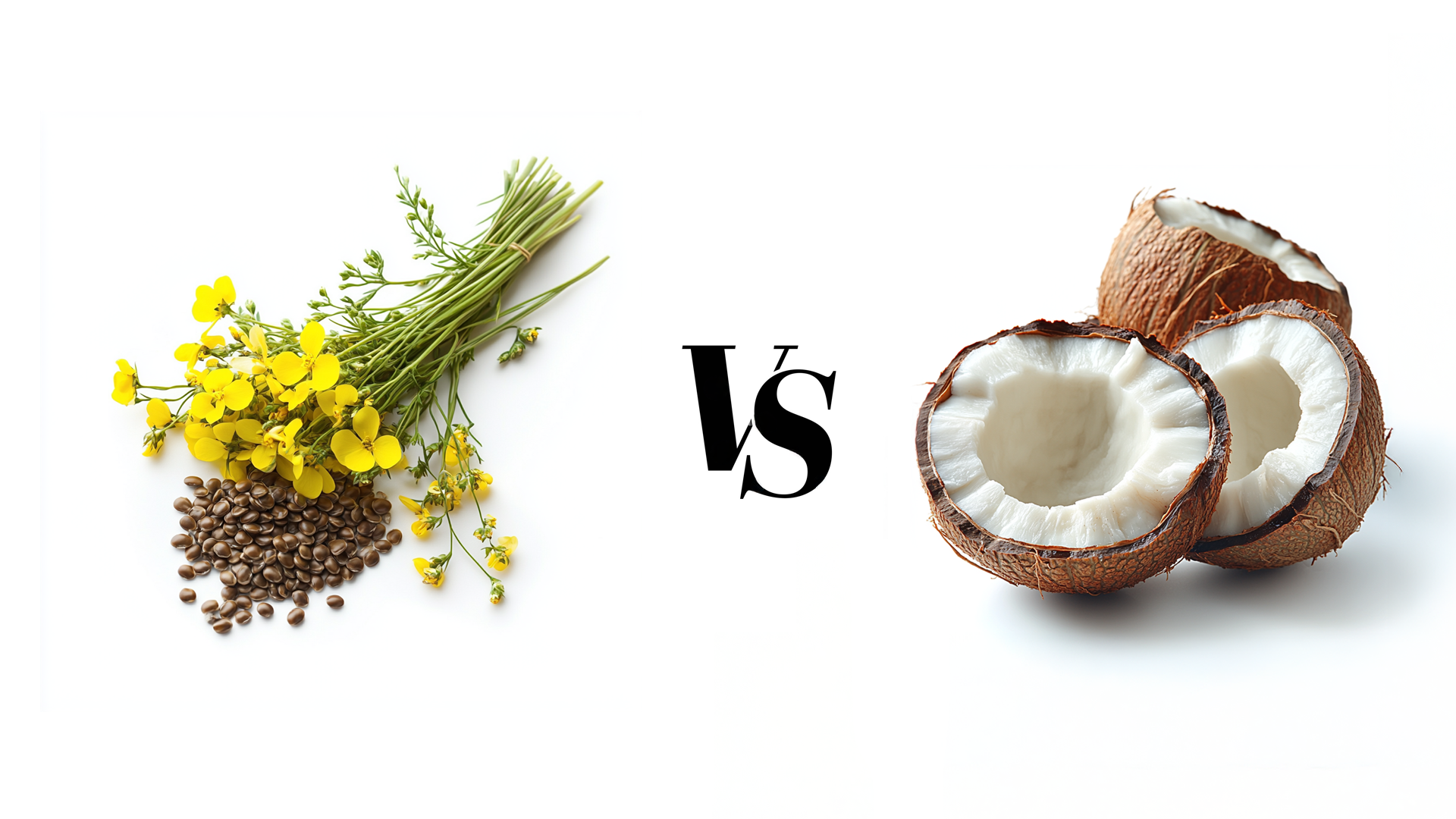
12. **Palm and Coconut Oils (and Unhealthy Cooking Fats)**Palm oil and coconut oil, despite their ‘natural’ marketing, are notably high in saturated fats. Regular use of these oils can significantly contribute to rising cholesterol levels. It’s crucial to understand that ‘natural’ doesn’t automatically mean ‘heart-healthy’ when evaluating fats, as saturated fat directly impacts LDL cholesterol.
Beyond these, other cooking fats also pose risks due to high saturated or trans fat content, including partially hydrogenated oils, margarine, butter, ghee, shortening, lard, and suet. These fats increase LDL cholesterol and can lower HDL, directly impacting cardiovascular health. While FDA rulings have reduced the presence of partially hydrogenated oils, vigilance remains important for other sources.
Making heart-smart substitutions in your kitchen is an empowering step. Opt for oils rich in monounsaturated and polyunsaturated fats like olive oil, avocado oil, corn oil, peanut oil, sunflower oil, safflower oil, and canola oil. These healthier alternatives support your lipid profile without the detrimental cholesterol impact, providing beneficial fats for overall heart health.
Carefully checking food labels and selecting cooking fats wisely empowers you to manage dietary cholesterol effectively. Actively avoiding added partially hydrogenated oils and limiting high-saturated-fat options like palm and coconut oil can profoundly protect your heart and maintain healthy cholesterol levels for a vibrant life.
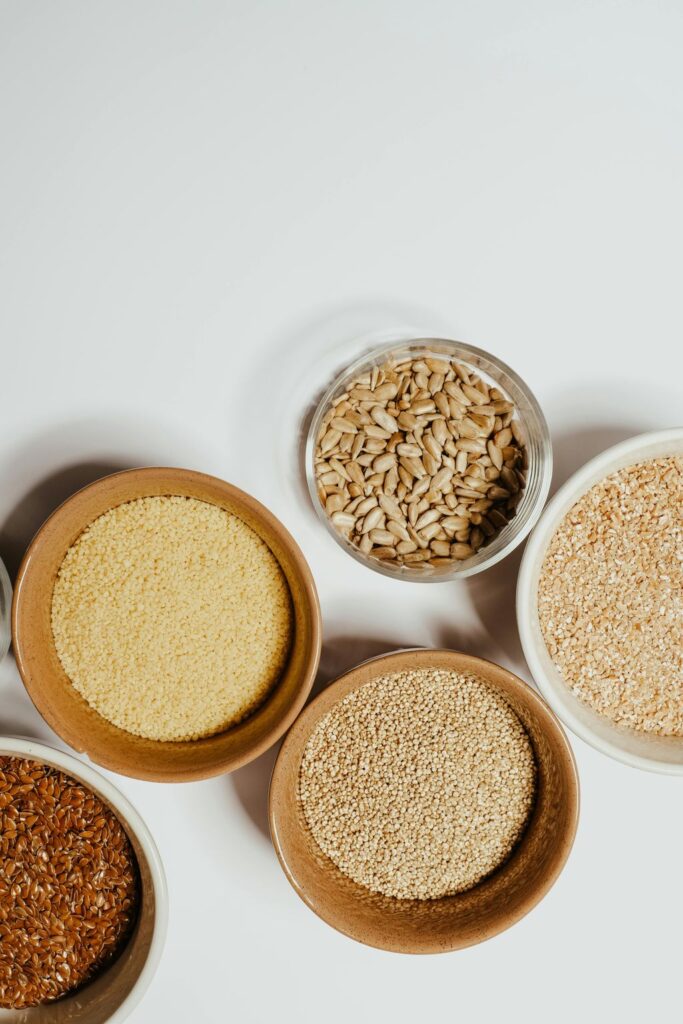
13. **Refined Grains**Refined grains, such as white bread, white rice, and many common breakfast cereals, can indirectly contribute to unhealthy cholesterol levels. The milling process strips them of essential nutrients, fiber, and beneficial plant compounds. What remains is primarily starch, which the body rapidly converts to sugar, leading to quick energy spikes.
This quick conversion of refined carbohydrates into glucose leads to blood sugar spikes and, over time, insulin resistance. Elevated insulin can prompt the liver to produce more triglycerides and ultimately increase ‘bad’ LDL cholesterol. The lack of fiber also hinders digestion, reduces satiety, and increases the likelihood of weight gain, all detrimental to cholesterol management.
To empower heart health, actively switch to whole-grain alternatives like whole-wheat bread, brown rice, quinoa, and oats. These retain their full nutritional value, including vital fiber that helps lower LDL cholesterol, promotes healthy digestion, and stabilizes blood sugar. This simple, powerful swap aligns with dietitian recommendations for a balanced lipid profile and improved cardiovascular well-being.
Read more about: Fueling Vision: The 14 Foods Ophthalmologists Strictly Limit for Optimal Eye Health and Clarity

14. **Sugary Foods and Beverages**Foods and beverages high in added sugars, including sodas, sweetened teas, candies, and many processed sweets, are significant contributors to poor cholesterol levels and increased heart disease risk. Their pervasive presence makes this a crucial area for heart health awareness, often impacting more than just weight.
Excessive sugar intake fuels obesity, insulin resistance, and metabolic disorders, all strongly linked to unhealthy cholesterol profiles. High sugar can increase triglyceride levels—a harmful blood fat—and lower beneficial HDL cholesterol. High fructose corn syrup, common in sugary drinks, is even linked to fatty liver disease, further compounding cardiovascular risks.
Empowering yourself to reduce sugar intake profoundly impacts cholesterol management. Choose water, herbal teas, or fruit-infused water over sugary beverages. Opt for whole fruits for natural sweetness, providing fiber and vitamins without the detrimental effects of added sugars. These conscious efforts help manage cholesterol, maintain a healthier weight, and support a vibrant, heart-healthy lifestyle.
Read more about: Fueling Clarity: The 12 Snacks CEOs Absolutely Avoid for Sharp Decision Making and Energy
Our exploration into these cholesterol-raising foods underscores a vital truth: informed dietary choices are truly one of the most powerful tools in preventing heart disease. As dietitians consistently emphasize, it’s not just about what you eliminate, but what you choose to embrace—a plant-forward diet rich in whole, unprocessed foods, healthy fats, and ample fiber. Remember, maintaining a healthy diet is a cornerstone of heart health, but it works best in harmony with regular exercise, adequate sleep, and effective stress management. By empowering yourself with this knowledge and making conscious, heart-smart decisions every day, you are actively taking control of your cardiovascular well-being. These small, consistent changes in your daily habits can lead to profound, long-term benefits, paving the way for a healthier, more vibrant life. Your heart will thank you for every mindful bite and every informed swap you make on this journey to optimal health.



